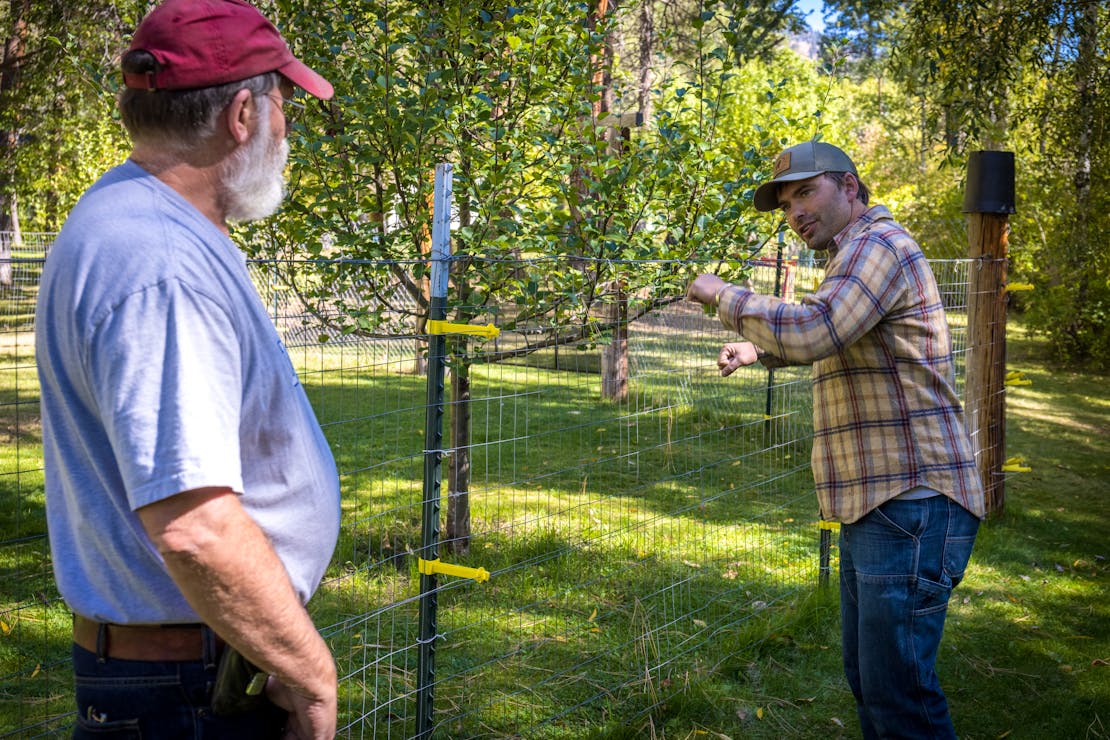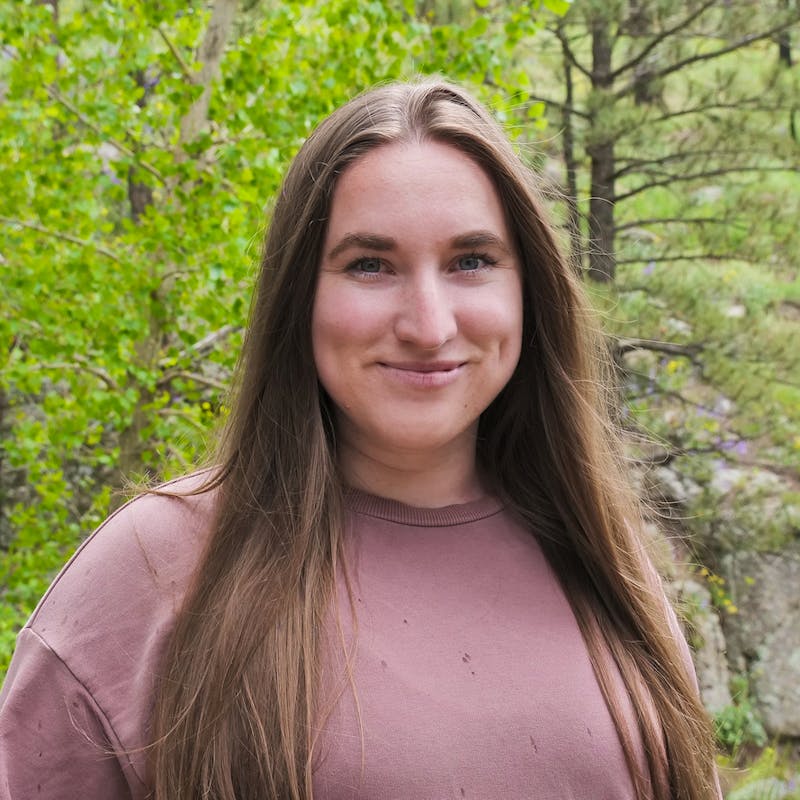In 2022, Defenders of Wildlife’s Rockies and Plains team continued to reach incredible milestones, fostering change for wildlife and humans to thrive on a shared landscape. Thankfully, we adapted as COVID-19 slowed over the summer to return to the fieldwork we love. Our team had a busy field season advocating for bison, wolves, grizzly bears, black-footed ferrets, prairie dogs, wolverines, beavers, freshwater fishes and more.
Recovering Imperiled Species and Restoring Their Habitats
Supporting Indigenous-led restoration projects is a core priority of our program. Last year, our team assisted the Blackfeet Nation with expanding and protecting an additional 3,500 acres of habitat for their cultural bison herd. This will increase their total buffalo habitat to 18,500 acres—more than 14,000 football fields! Ultimately, this project will help advance the Iinnii Initiative, the restoration of buffalo by the Blackfeet Confederacy.
For the past five years, our team has been on the ground at Southern Plains Land Trust in Colorado working to restore their prairie ecosystem and prairie dog population. Now with nearly 2,000 acres of active prairie dog colonies, the U.S. Fish and Wildlife Service approved a release of endangered black-footed ferrets. In October, Defenders and our partners gathered together to finally reintroduce the ferrets to this new critical prairie habitat.
Advancing Coexistence Initiatives
Defenders has long championed wildlife coexistence in the west. The Rockies and Plains team leads growing coexistence programs for grizzly bears, bison, prairie dogs, beavers and wolves.
2022 marked year 12 of our extremely popular and effective grizzly bear electric fence incentive program, helping landowners install electric fences around items that attract grizzly bears into contact with people. It's so popular, in fact, that we reached our 500th electric fence project in mid-2021 and are closing in quickly on number 600. By securing potential bear attractants such as chickens, beehives and garbage, we can prevent grizzly bears from being lured near homes and becoming habituated to people. Each item secured and out of the reach of bears promotes human tolerance of grizzly bears and helps save individual bears from conflict.
We also wrapped up year five of our beaver coexistence incentive program. Unlike the grizzly bear program, this initiative encourages landowners to allow beavers to reside on their lands by addressing the conflicts or concerns landowners may have. Thankfully, complex conflicts can have simple solutions, like protecting trees with fencing or sand-paint. Our experts can also help prevent flooding by installing devices in beaver ponds that stabilize the desired water level. By exploring these solutions, landowners can rest easy while playing an essential role in aquatic habitat conservation. So far, we have completed at least 57 projects and expanded the program to Colorado, Montana, Wyoming and New Mexico. In 2023, we plan to triple this program to meet the growing need in Montana.
Expanding Outreach, Education and Advocacy
As we prepare for wolf reintroduction to Colorado, wolves have carved their own path and established the state’s first confirmed resident pack in decades—also known as the “North Park Pack.” Defenders gained strong headway after focusing outreach efforts on the ranching community in this area over the past few years. In addition to installing fladry (strips of cloth attached to fences, whose fluttering deters wolves) and hiring range riders for ranchers facing conflict, we began holding 5-day workshops featuring a series of speakers well-versed in non-lethal husbandry and management. These workshops create a space for advanced conversations and discussions about hands-on, low-stress livestock handling techniques that reduce potential conflicts. We are excited to continue fostering relationships in 2023, promote more workshops, and find common ground to establish a community-owned program that minimizes risk for both ranchers and wolves.
To further advance our work supporting prairie dog coexistence, Defenders co-hosted our first Prairie Dog Coexistence Workshop for land and wildlife managers with the Humane Society of the United States and the Prairie Dog Coalition. Similar to the wolf workshop noted above, we explored the applicability of non-lethal management in an interactive, peer-learning environment. With these opportunities, we hope to ultimately reduce human conflicts with prairie dogs and increase the use of non-lethal tools to address one of the core barriers to black-footed ferret recovery. Based on the overwhelmingly positive response to this first workshop, we are looking forward to more in 2023.
What to Watch in 2023
In December 2022, Colorado Parks and Wildlife presented their draft wolf reintroduction plan to the commission in a 4-hour public meeting, recorded and posted to YouTube. The draft plan is now open for public comment through February 22 at in-person and virtual meetings across Colorado. Defenders is working with both individuals and NGOs to submit comments on the plan before it is finalized by the commission in May.
Did you know that state legislative sessions across the country began this month? Our team is rolling up their sleeves for the Montana session, where we expect more sweeping anti-wildlife bills. If you are a Montana resident, please sign up for member alerts and regularly check our Advocate in Your State page for action opportunities.
The impact and reach of our program would not be possible without the innumerable partnerships and collaborations that push us to greater heights. We cannot wait to see what 2023 holds and what we can accomplish together!










